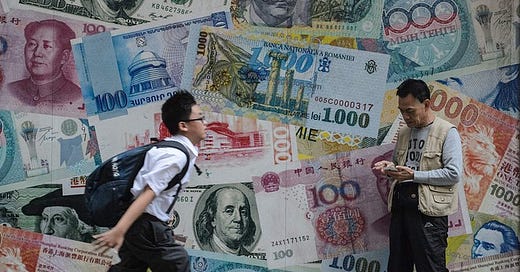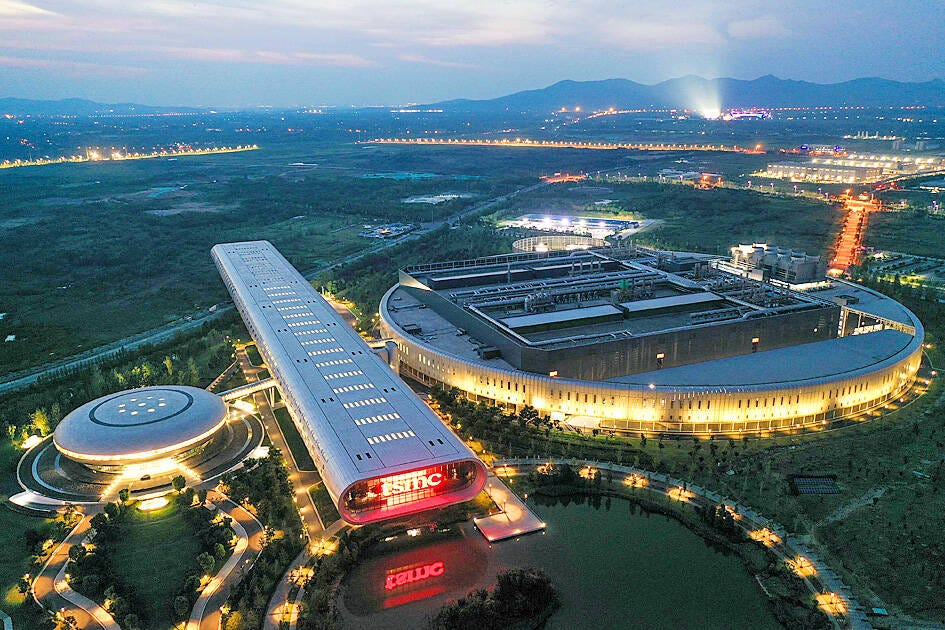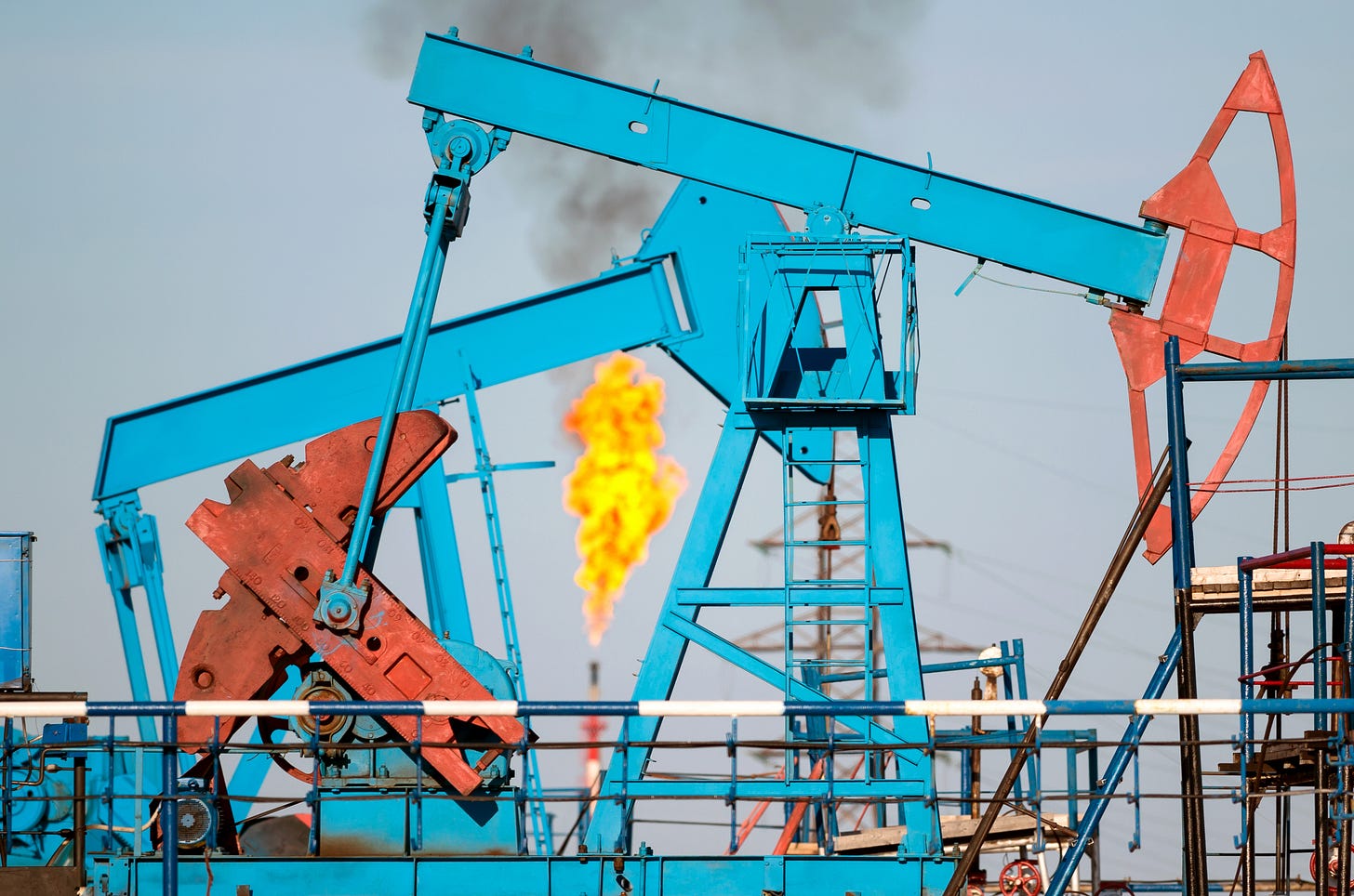Emerging Markets Monitor - February 15
EM Currencies Under Fire, Buffet's TSMC Sale Spooks Investors, OPEC 2023 Forecast,. Ashmore's EM Troubles, Foxconn Diversifies to Vietnam
The Top 5 Stories Shaping Emerging Markets from Global Media - February 15
Strong Dollar Fuels Wave of EM Currency Devaluations
Financial Times
“A recent spate of currency devaluations has highlighted the intense pressure on many emerging economies, as the strength of the US dollar forces them to spend precious foreign reserves supporting their exchange rates. Egypt, Pakistan and Lebanon all abandoned longstanding policies of pegging their currencies to the dollar in January.”
“With the US currency remaining historically strong despite falling back slightly since October, economists and investors warn that a further slew of emerging and frontier markets may be forced to succumb to market forces and follow suit.”
“‘There is a compelling case for them to seize the day,’ said Robin Brooks, chief economist at the Institute of International Finance. He said Ukraine, Nigeria and Argentina are among economies likely to see their currency pegs come under pressure.”
“…The trio of countries to devalue so far this year did so in a bid to unlock emergency finance from the IMF. With 60 per cent of low-income countries at risk of debt distress or already in it, according to the IMF, more controls will be put to the test this year, analysts say.”
“Egypt’s 23 per cent devaluation since January 4 was the third since March last year, when the government began lifting a peg in place for five years. The pound has since lost about half of its dollar value. Pakistan’s rupee lost about a fifth of its dollar value after authorities loosened controls on January 26. Lebanon’s central bank let its currency plummet by 90 per cent against the dollar on February 1, removing a peg in force since 1997.”
“…Turkey, too, is unlikely to address any time soon what many analysts see as an artificially strong currency given the intense inflationary pressures faced by the population which could be compounded by the recent earthquake….Ghana’s central bank drained its reserves to support its currency for years. In December, the government abandoned these efforts…and launched a punitive restructuring of domestic debt. The cedi, which appreciated strongly in the run-up, has since lost half its dollar value.”
“Next may well be Nigeria, which has long had what analysts say is an unsustainable system of multiple exchange rates.” Jonathan Wheatley reports.
Buffet’s Quick Sale of TSMC Stock Spooks Investors
Bloomberg
“Warren Buffett slashed his holding of Taiwan Semiconductor Manufacturing Co. just months after disclosing a major stake, an unusually quick reversal by the legendary stock picker that’s chilling investor sentiment toward the chip giant.”
“Buffett’s Berkshire Hathaway Inc. cut its holding of TSMC’s American depositary receipts by 86% last quarter, according to the latest filing. Assuming it sold them at the average price over the period, the stake sale would have fetched $3.7 billion.”
“Shares of the world’s largest chip foundry slid as much as 4% in Taipei following the news, amid broad market losses. TSMC had jumped in November amid news that Buffett had acquired a stake worth about $5 billion, and it’s still up more than 40% from an October low.”
“‘It’s surprising that Berkshire cut its holding so much in just a quarter, which differs from its past practice of long-term investment and continuing to add shares,’ said Tony Huang, vice president at Taishin Securities Investment Advisory Co.”
“The chip industry has had to contend with Covid-induced supply disruptions in China and a slump in demand for electronics amid surging inflation. TSMC cut its spending target by about 10% in 2022 to about $36 billion after the Biden administration slapped new restrictions on China’s access to critical technologies.” Bloomberg reports.
OPEC Raises 2023 Oil Forecast Demand as China Reopens
The National
“OPEC has raised its 2023 oil demand forecast by 100,000 barrels per day amid expectations of an economic rebound in China, the world's largest crude importer. The group expects global oil demand to grow by 2.3 million bpd this year, which is higher than its previous estimate of 2.2 million bpd growth for 2023.”
“‘Key to oil demand growth in 2023 will be the return of China from its mandated mobility restrictions and the effect this will have on the country,’ the group of oil-producing countries said in its monthly oil market report on Tuesday.”
“China, the world’s second-largest economy, reopened its borders last month after adhering to a strict zero-Covid policy for about three years. ‘Much will depend on how the government plans to manoeuvre the delicate balance of curbing Covid-19 infections versus opening up for business,’ Opec said.”
“‘Moreover, a number of global economic concerns — including the inflation levels, monetary tightening measures, sovereign debt levels, as well as geopolitical tensions — will weigh on global oil demand prospects.’ Opec also revised its global economic growth forecast for this year to 2.6 per cent on ‘better-than-anticipated’ economic performance in key countries in the second half of 2022.”
“It previously estimated growth of 2.5 per cent.” John Benny reports.
How an Emerging Market Bull Raked in $40 Billion - Then Lost It
“Ashmore Group Plc rode the emerging-market wave to pull in billions of dollars of client money. Then came the pandemic, war in Ukraine and a global jump in rates that made investors reassess risk. At the asset manager — known for its high conviction bets and bullish style — by the time 2022 was out, negative performance and outflows had combined to erase $40 billion of assets.”
Bloomberg
“Back in the good times, Mark Coombs and his team of emerging markets bulls charmed the room with their charismatic storytelling and assertive style. From London to New York to Tokyo, clients admired their expertise and gave them billions to invest in some of the world's least-understood economies.”
“Ashmore Group Plc rode the emerging-market wave to pull in billions of dollars of client money. Then came the pandemic, war in Ukraine and a global jump in rates that made investors reassess risk. At the asset manager — known for its high conviction bets and bullish style — by the time 2022 was out, negative performance and outflows had combined to erase $40 billion of assets.”
“Investors have yanked money from the emerging market fixed-income specialist in 10 of the previous 12 quarters. Assets, which were also hurt by soured positions, had almost halved to $57.2 billion. Profit before tax for the six months through December plunged 54% on a year-on-year basis.”
“Last Wednesday, the firm said its investments had gained in recent months and sentiment was improving, supported in part by China’s reopening after it pulled back from its strict Covid Zero policy. A much-needed respite with a slight catch: on a net basis, investors were still asking for their money back.”
“Since it broke out of the Australia & New Zealand Banking Group and became an independent asset manager in 1999, the London-based fund house has earned a reputation for maneuvering through emerging markets. That peaked when Coombs and his traders saw their assets almost double to $98.4 billion in the four years through 2019.”
“At a time when active managers across the investment industry were struggling, Ashmore’s high profit margins were a testament to the value of a specific expertise. Clients couldn’t get enough. Even though performance was up and down, the money just kept pouring in. In the year through June 2018, net inflows reached $16.9 billion despite the firm losing $1.4 billion to performance.”
“…Now, as many of Wall Street’s biggest names debate whether there’s more opportunity or danger in emerging markets, clients also are asking whether Ashmore is the firm they want to navigate those tricky areas.” Loukia Gyftopoulou reports.
Foxconn Leases New Site in Vietnam to Diversify Apple Production
South China Morning Post
“Apple’s biggest contractor Foxconn Technology Group said it has secured a new site in Vietnam, as the Taiwanese giant pushes ahead with efforts to shift more production away from mainland China following major disruptions at its key manufacturing base late last year.”
“Taipei-listed Foxconn, formally known as Hon Hai Precision Industry, has signed a lease with Saigon-Bac Giang Industrial Park Corp to occupy a plot of 45 hectares (111 acres) for around US$62.5 million to meet ‘operational needs and expand production capacity’, according to an exchange filing on Tuesday.”
“…Foxconn signed a US$300 million agreement with a Vietnamese developer last August to build a new factory in Bac Giang, where it already produces iPads and AirPods, Reuters reported at the time, citing state-run newspaper Tuoi Tre.
“Apple’s biggest contractor Foxconn Technology Group said it has secured a new site in Vietnam, as the Taiwanese giant pushes ahead with efforts to shift more production away from mainland China following major disruptions at its key manufacturing base late last year.”
“…The site, located in the Quang Chau Industrial Park in Bac Giang province east of Hanoi, was rented through Foxconn’s subsidiary Fulian Precision Technology Component Co. The lease will run through February 2057, the company said.”
“Foxconn’s latest deal in Vietnam comes after its iPhone plant in the central Chinese city of Zhengzhou – the largest in the world and known as iPhone City – was rocked by an exodus of tens of thousands of employees and violent worker protests amid stringent pandemic control measures imposed during a Covid-19 outbreak that began in late October.” Iris Deng reports.
“Grind and sweat, toil and bleed, face the abyss. It’s all part of becoming an overnight success.” Naval Ravikant









Buffett’s Berkshire Hathaway has also been dumping BYD - a Chinese auto and EV stock for some months now BUT I know some EM funds have been buying: https://emergingmarketskeptic.substack.com/p/em-fund-stock-picks-commentary-february-14-2023
Apparently, we will need to wait for the investor letter next month for a possible explanation...